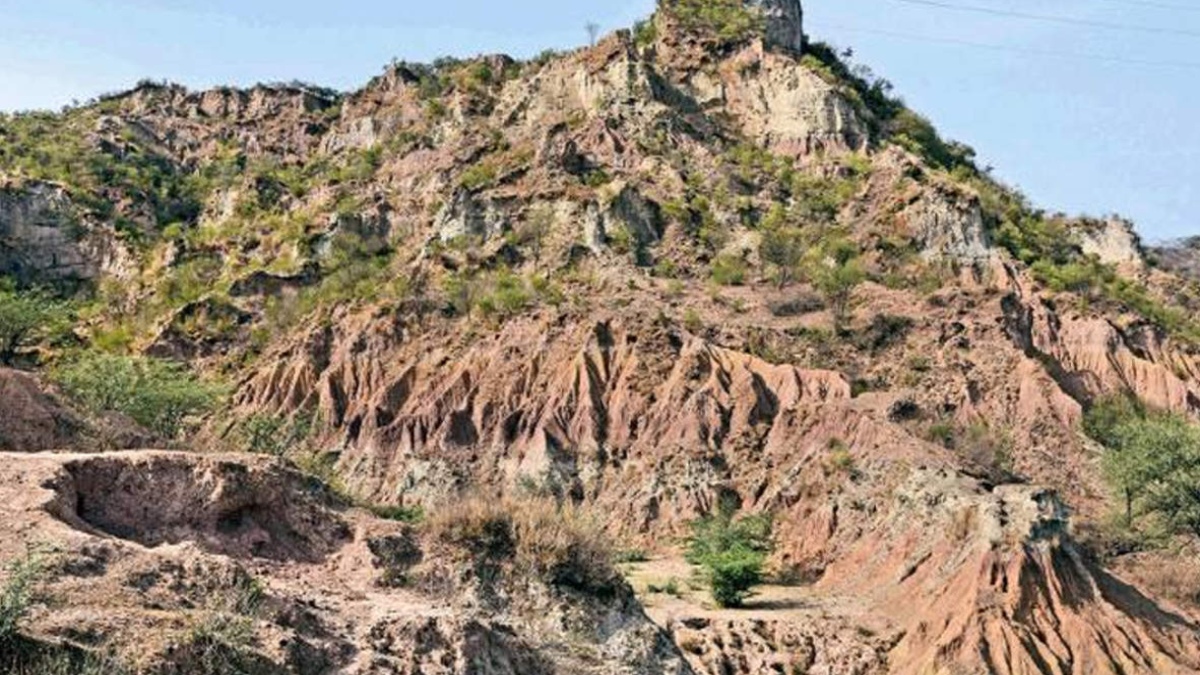


Masol, a village in Punjab, which helped settle the debate about the origins of apes, is yet to be declared a “protected land”. Call it the slackness of the Archaeological Survey of India (ASI) or the local administration, Masol is yet to be declared “protected land”.
In 2016, a joint Indo-French team had gained worldwide attention with their paper in a French journal Comptes Rendus in which they had claimed that cut marks on fossilised bones found in Masol are proof of Hominin activities dating back to 2.6 million years.
Masol hogged the headlines in newspapers when the ASI, along with the India-based Society for Archaeological & Anthropological Research (SAAR) and France’s National Scientific Research Centre (CNRS) and department of Prehistory of the National Museum of Natural History, found 2.6 million-year-old fossils, claiming them to be the oldest fossils, shadowing the ones found in the Rift Valley of Ethiopia which are said to be 2.58 million years old, in a village called Masol.
At that time, ASI, being a Central government body, tried to make Masol a “protected land”, but could not due to red tape. It is pertinent to mention here that more than 2,000 fossils of different herbivores were found by the team during digging in 2016. These include Stegodon, an ancient elephant with tusks up to four meters, and Sivatherium, a giant giraffe in the Shivalik foothills of this village. ASI had identified around 150 acres of land to be declared a “protected area”. The village is located in Shivalik Hills, 10 km from Chandigarh.
“To declare it a protected land, the government asked us to see the land and we saw the land. There have been a lot of land disputes. In 2019, we had sent a proposal for declaring Masol a protected land to our Department of Prehistory of the National Museum of Natural History, Nagpur. We are still awaiting a reply from the department. Once the site is declared ‘protected’, it will be under our control and the excavation of the fossils will begin. Due to Covid, the whole process got delayed,” said Zulfikar Ali, Archaeological Superintendent, Chandigarh Circle.